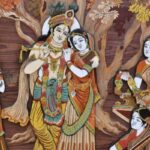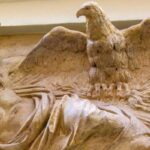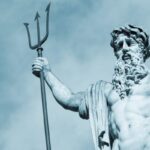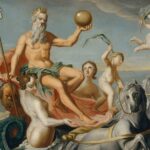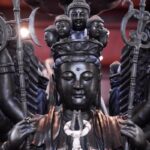We explain what the main goddesses of Ancient Greece were, the characteristics of each one and their mythological origins.
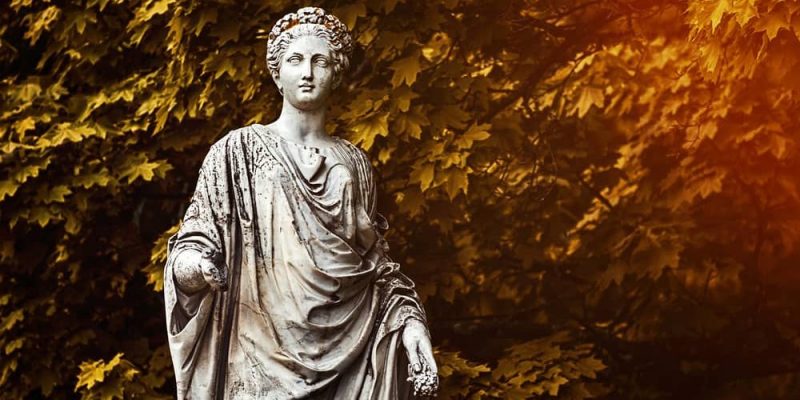
What were the main goddesses of Ancient Greece?
The culture of Ancient Greece (1200-146 BC) was characterized by the great development of its mythology that is, the stories and legends that make up the religious belief system. The Greeks believed in the existence of many deities and represented them in human form. The lives of these gods were crossed by the same elements as human social life: emotions, desires, fears, violence, power, jealousy, love and anger.
For centuries, mythology was transmitted from generation to generation orally, but from the 8th century BC. C., the Greeks began to write the stories of the gods and goddesses. Thanks to authors such as Hesiod, Sophocles and Herodotus, today we can learn about the stories that make up Greek mythology, and who and how its main gods and goddesses were.
Among the most important goddesses of Greek mythology, There are Hera, Aphrodite, Athena, Artemis, Demeter and Persephone. These same deities were known in Ancient Rome and during the Renaissance period by the names of Juno, Venus, Minerva, Diana, Ceres and Proserpina.
Characteristics of the Greek goddesses
Among the main characteristics that the Greek goddesses had are the following:
- Anthropomorphism. All the divinities of Greek culture were represented in human form and had the same emotions as people. Greek mythology is full of stories filled with the passion, drama, and conflicts of the interaction between gods and goddesses.
- Immortality. The gods and goddesses of Greek mythology were immortal, did not age, and were immune to disease. They existed since the beginning of time and could transmit immortality to their children (gods or demigods).
- Link with nature. Each divinity was associated with different elements of nature or social life, over which they had special power. These aspects could be both phenomena, such as the storm; human emotions, such as love; actions, such as war; or natural elements, such as the earth.
- Pantheon. The Greek gods and goddesses were related to each other through family ties, marriages, and conflicts, so the stories of each divinity must be understood within the broader framework of the Greek pantheon.
- Worship. Each Greek goddess and god was worshiped in different cities through different rituals and ceremonies. Many goddesses had temples or shrines especially dedicated to them.
Hera (Juno for the Romans)
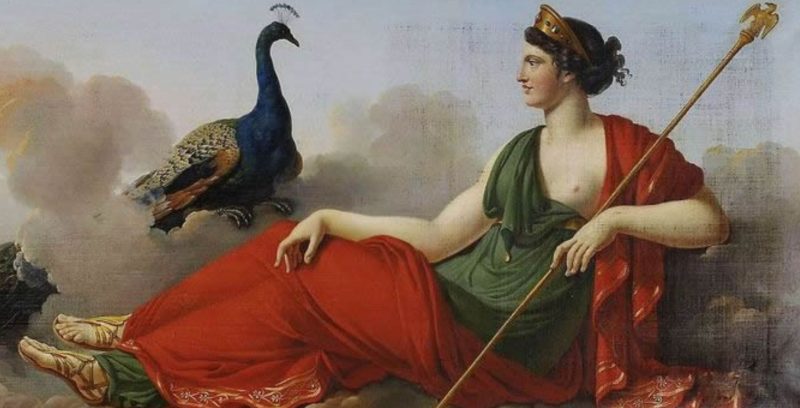
Hera was one of the most important goddesses in the Greek pantheon. She was queen of Mount Olympus, patron of marriage and protector of women and children. It was associated with motherhood and the domestic role of women. She was represented as a young woman, with beautiful dresses and great beauty, sometimes wearing a crown. Among their emblems were a scepter decorated with a cuckoo (a bird) on top, the pomegranate (a fruit) and the peacock.
Hera was one of the first goddesses to be worshiped by the Greeks especially in the Samos region. There, many ancient temples were discovered in her honor, in which she was honored through different ceremonies and sacrifices.
In the Olympian pantheon, she occupied a place of authority because she was the sister and wife of Zeus (king of all the gods), and daughter of Cronus and Rhea (primal gods). Likewise, she was the mother of four gods: Ares, Hebe, Hephaestus and Ilithia.
Although it was attributed to the protection of marriages and domestic life, in mythology, Her bond with her husband was complex and unhappy due to Zeus' numerous and continuous infidelities. Hera's stories are full of revenge against her husband's lovers and illegitimate children.
Aphrodite (Venus for the Romans)
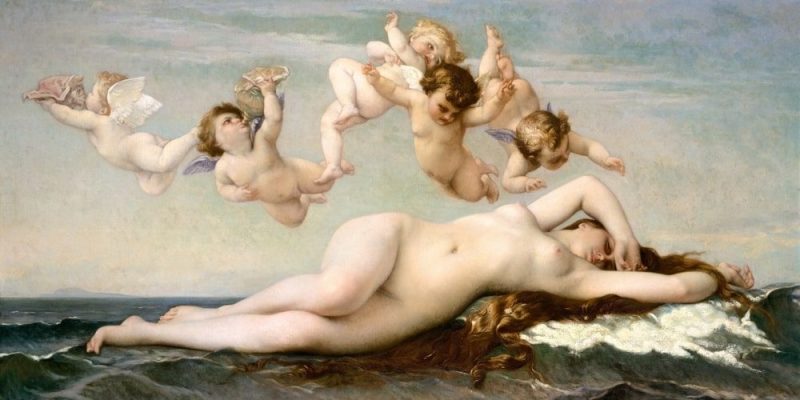
Aphrodite was another of the most important goddesses of the Greek pantheon. It belonged to Mount Olympus and She was the goddess of love, beauty, passion and fertility. It was associated with eroticism and at the same time with the sacred love of marriage. She was so beautiful that all the men who saw her fell in love with her.
There are different versions about the origin of Aphrodite. Some authors indicate that he was born from the foam of the sea, when the god Cronus mutilated his father, the titan Uranus, and threw him into the ocean. Therefore, in some works of art she is depicted riding a seashell. Other authors describe Aphrodite as the daughter of the god Zeus and Dione.
Aphrodite was married to Hephaestus, but her stories say that she had many lovers. Among them were Ares (god of war), Poseidon (god of the sea), Hermes (god of communication) and Dionysus (god of wine). With her husband and her lovers, Aphrodite had sixteen children.
The cult of Aphrodite was common throughout Greece, and annual festivals were held in her honor: the Aphrodisias. She was especially venerated in the cities of Paphos, Amatunthe and Corinth, as a protector of fertility and also associated with the cycles of nature.
Athena (Minerva for the Romans)
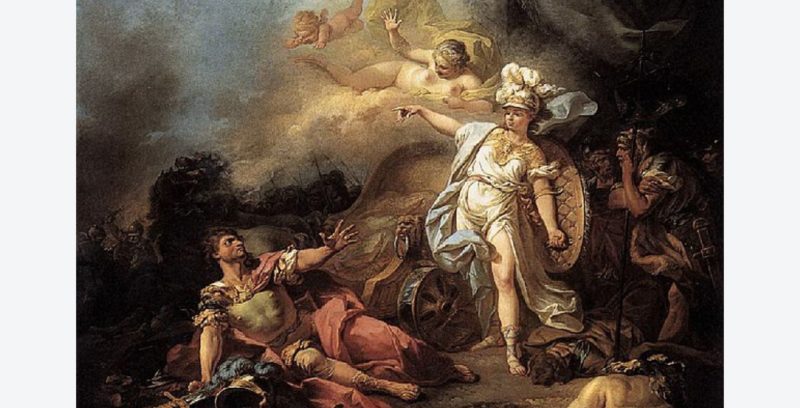
Athena was revered in Greece as a warrior goddess who was associated with numerous virtues and was one of the main deities of Mount Olympus. Her cult was common throughout Greece and its areas of cultural influence, but she was especially considered the patron saint of Athens and the Attica region.
On the one hand, she was worshiped as a goddess of war (the female counterpart of the god Ares). On the other hand, It was associated with peace and compassion; as well as with arts and crafts, intelligence and insight. In Athens, she was worshiped as the goddess of wisdom.
The goddess Athena appears involved in numerous stories. In them, he usually has a role that stands out for his intelligence and his assistance to heroes (such as Odysseus, Jason and Diomedes).
There are different versions about its origin. According to some authors, Athena was born from the head of Zeus, when Hephaestus broke it with an ax. Zeus had eaten his lover, the goddess Metis, because it was said that the divinity that would govern all the gods would be born from her. Other accounts describe that Athena appeared on the side of a lake and was nourished by three nymphs (female nature spirits).
Artemis (Diana for the Romans)
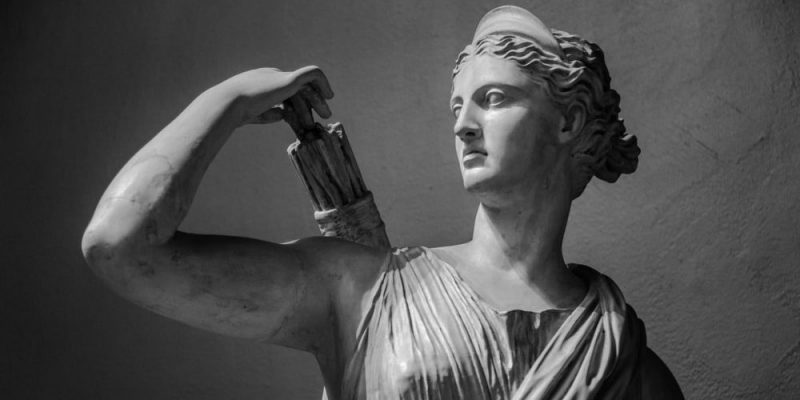
In Greek tradition, Artemis was a very important goddess, especially venerated in Arcadia, the island of Crete and the cities of Asia Minor and Magna Graecia. She was the goddess of hunting, childbirth and chastity.
In Sparta, the famous Greek warriors dedicated sacrifices to him before going into battle and it was common for young maidens to be sent to his temples to serve him for a year.
Artemis was a hunting goddess, associated with wild animals, wild terrain, chastity, and childbirth. She was depicted carrying a bow and a quiver of arrows, sometimes in the company of a deer and a cypress tree. She was the daughter of Zeus and Leto, twin sister of Apollo and rival of the goddess Aphrodite, with whom she constantly clashed and competed for the favor of mortals.
In the stories, Artemis is described with a double attitude: benevolent, on the one hand, but vengeful and violent, on the other. She punishes all the nymphs (nature spirits who attend to her) who fall in love or stop being chaste, and those gods who violate her chastity.
In one of the myths, Artemis falls in love with Orion, who is also a great hunter. However, the goddess is deceived by her brother Apollo and ends up killing her love with an arrow.
Demeter (Ceres for the Romans)
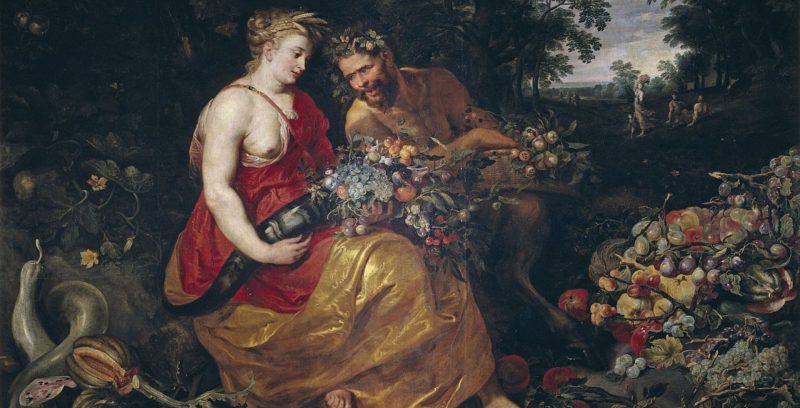
Demeter or Demetra was one of the oldest deities of Greek religion. She was the goddess of agriculture and the cycles of nature which is why she was revered as “bringer of the seasons.”
The roles associated with Demeter were diverse, almost always associated with the land, the foundation, legislation and the harvest. It was believed that humanity owed him the knowledge of sowing and cultivation so his cult was especially popular in agricultural regions.
Demeter was the sister of Zeus in mythology and the devoted mother of Persephone, who was consort of the god of the dead, Hades.
The myth says that Persephone was kidnapped by Hades (god of the underworld) and that Demeter spent a lot of time searching for her on earth, until she learned that she ruled alongside the lord of the underworld. Zeus interceded on her behalf and an agreement was reached between the parties: Persephone would spend six months with her mother and six months with Hades.
The Greeks linked this myth to the origin of the seasons. The first six months, Demeter was happy with her daughter and entertained her with flowers and fruits (spring and summer), while the rest of the year she regretted her absence and, therefore, the soils became cold and dry (autumn and winter).
Persephone (Proserpina for the Romans)
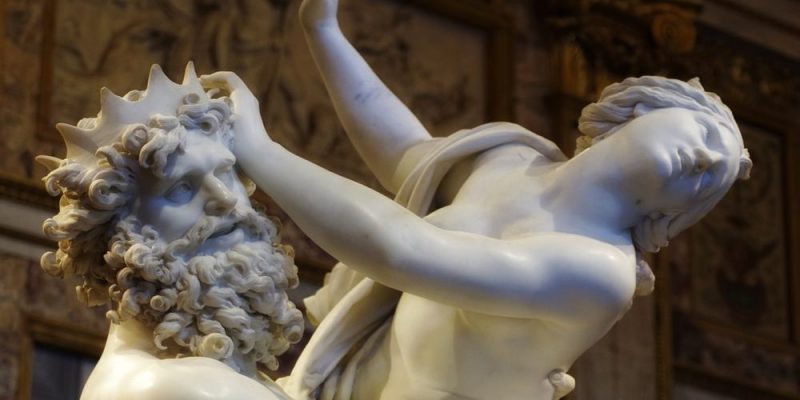
Daughter of Zeus and Demeter, Persephone she became the goddess of the underworld. There he reigned over the dead along with Hades. After her mother and her husband reached an agreement, Persephone lived six months on earth and six months in the underworld.
Her marriage to Hades was one of the happiest in Greek mythology and her authority in the underworld was equivalent to that of her husband. Persephone was a ruthless goddess, nicknamed in the Odyssey like the “iron queen.”
In one of the stories, Persephone shows her mercy to the hero Orpheus, whose music is so moving that the goddess allows him to go down to the underworld and recover his wife, Eurydice. The only condition is that, when you take it back, you walk in front of it and never turn your face until you reach the surface. Orpheus accepts the deal, but cannot bear the uncertainty of knowing if his beloved follows him. Looking back, he breaks the agreement and loses her again.
Hades and Persephone had no offspring, and Hades' attempts to have other concubines were always punished by his wife, who transformed his lovers into trees or plants. On the other hand, Persephone herself was seduced by Zeus in the form of a snake, and thus gave birth to Zagreus.
Genealogy of Greek Goddesses and Gods
In Greek mythology, the gods belonged to different generations. The first generation was that of the primal divinities, called “titans.” creators of all things. Among them are Uranus (god of the sky) and Gaea (goddess of the earth), from whom all the gods descend.
The second generation was made up of the Olympian gods. The god Zeus led a victorious war against the Titans and established a new order. This generation of gods resided on Mount Olympus and ruled the entire cosmos. Zeus and Hera were the Olympian kings and each of the divinities influenced different aspects of human life. For example, Athena was the goddess of wisdom; Apollo, the god of the sun; Artemis, the goddess of hunting and Aphrodite, that of love.
The third generation integrated different demigods and heroes who descended from the union of gods and mortals. Among them are Hercules (son of Zeus and the mortal Alcmene), Achilles (son of the goddess Thetis and the mortal Peleus) and Perseus (son of Zeus and the mortal Danae).
References
- Ackermann, ME, Schroeder, MJ, et al. (2008). Greek mythology and pantheon. Encyclopedia of World History. The Ancient World. Prehistoric Eras to 600 ce Vol I. Facts on File.
- Daly, K. (2004). Introduction; Hera; Aphrodite; Athene; Artemis; Demeter; Persephone. Greek and Roman Mythology. A to Z. Facts on File.
- Evslin, B. (2012). Gods, Demigods and Demons. An Encyclopedia of Greek Mythology. Open Road Media.

